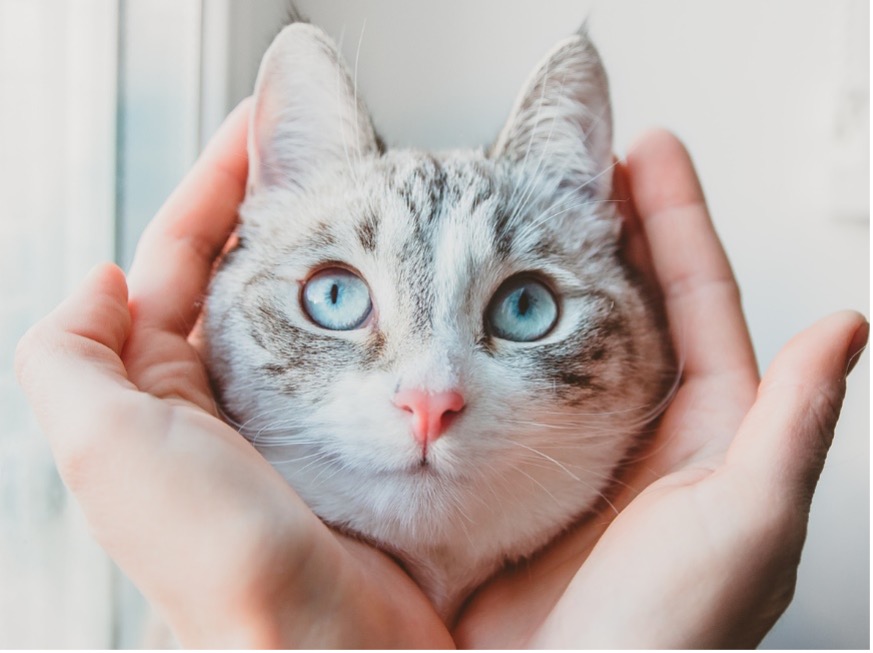Pets naturally hide their pain. This behavior is to protect them from predators during times of injury or sickness. For this reason, routine wellness exams are essential to detect and prevent diseases and keep your pet healthy.
Today, too many pets are suffering from preventable diseases such as obesity and dental disease. As pets get older, they are more prone to get arthritis, diabetes, and kidney disease. The earlier we catch these diseases, the more success we will have in treating them. The net result of routine wellness exams is early detection and prevention of disease. The goal is for your pet to have a healthy and longer life.
What to Expect at a Wellness Exam
During an exam, the veterinarian will check your pet thoroughly. They will note any abnormalities, signs, or symptoms of illness. We will examine your pet’s eyes, ears, nose, mouth, chest, stomach, skin, and paws. Our doctors also check the pulse, heart rate, rhythm, weight, and body condition of your pet.
We tailor our wellness exams to the specific needs of your pet during their different stages of life. We will provide your pet with the preventive care needed to promote their optimal health with each program. As a part of your pet’s preventive health care, we recommend the following schedule for checkups:
- Puppies and kittens: At 6-8 weeks of age and every four weeks* until the pet is over 18 weeks
- Adult dogs and cats: Once yearly
- Older dogs and cats: Twice yearly
However, if we treat your pet for a medical condition, we may recommend a more frequent schedule.
Wellness Exam Procedure
When you bring your animal in for a wellness exam, there are several things that we will go over with you. These include:
- Physical examination
- Vaccinations
- Annual Deworming
- Canine Heartworm testing
- Parasite Control and Treatment
- Dietary counseling
- Chronic condition evaluation
- Diagnostic and Treatment recommendations
If you have noticed any changes in your pet’s behavior, eating habits, mood, etc., let us know. Even minor changes may be a clue that something more serious is going on that we need to check out.
Senior Pets
Wellness checks are even more important for senior pets. As pets age, they can become even more prone to health issues. Unfortunately, heart disease, cancer, joint problems, etc., become much more common in older pets. Generally, once a pet reaches over the age of 7, you should have them examined at least twice yearly. But it is best to consult with your veterinarian, as your pet may need additional wellness checks based on their medical condition or age.
Vaccinations
Adult dogs and cats have vaccine programs based on their age and lifestyle. Puppies and kittens should be vaccinated every four (4) weeks, starting at eight (8) weeks of age until they reach over 18 weeks of age. The state of Nevada requires by law that your dog and cat be current on their rabies vaccination. We give Bordetella vaccine (for kennel cough) as a core vaccine because it is so contagious and widespread in our area.
Some vaccines require annual boosters. Others have a longer period of efficacy. We give some vaccines if your dog or cat has a lifestyle need. For example, a dog that spends time in the woods has a higher risk of leptospirosis (a severe bacterial infection). Your veterinarian will discuss your pet’s lifestyle with you and make recommendations for your pet’s vaccine protocols.
Summary
Above all, your pet’s health and happiness are our top priority! We want to do everything we can to make sure they live the best life they possibly can. To do that, we need to see them to diagnose and handle any problems as they may come up. A wellness exam also gives you some peace of mind knowing your pet is being well cared for with no illness going undetected. If you need to schedule your pet’s wellness exam, contact us to schedule it and ask us any questions you might have.
Happy Thanksgiving!
Kathryn Moriarty
Aspen Veterinary Clinic

